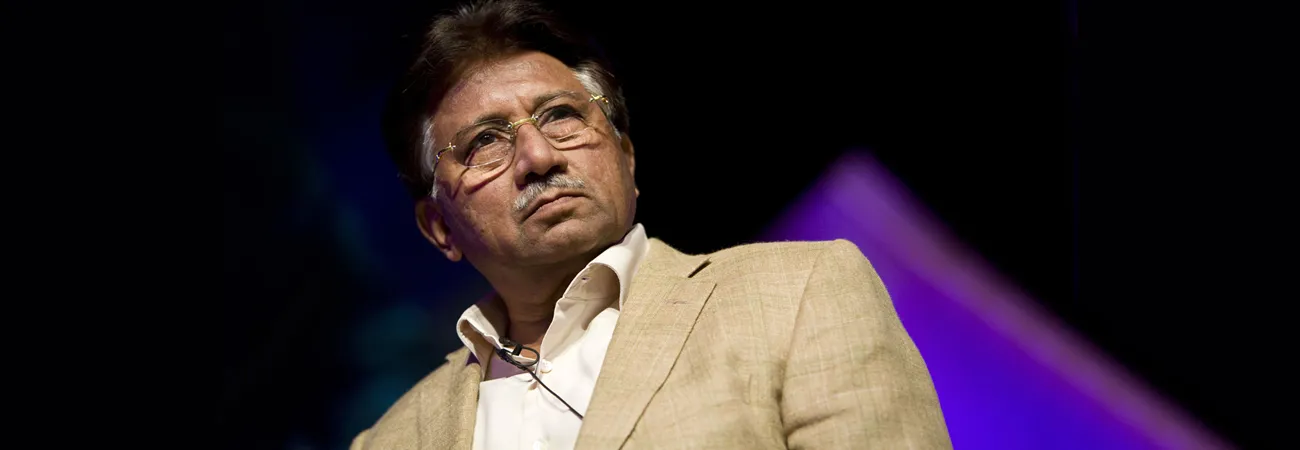i NEWS PAKISTAN
The Supreme Court on Wednesday upheld the death sentence of late former military ruler Pervez Musharraf, awarded to him by the Special Court in the high treason case. Announcing the short order, Chief Justice of Pakistan (CJP) Qazi Faez Isa said, “The impugned passed on January 13, 2020 by the Lahore High Court (LHC) […] is not sustainable and accordingly set aside.” The order comes as a four-judge SC bench took up a set of appeals pertaining to the Jan 13, 2020 LHC order declaring unconstitutional the death sentence awarded to Musharraf on Dec 17, 2019. Justice Syed Mansoor Ali Shah, Justice Aminuddin Khan and Justice Athar Minallah were other bench members hearing the appeals. In December 2019, a special court in Islamabad found Musharraf guilty of high treason and handed him a death sentence under Article 6 (high treason) of the Constitution. It marked the first time in Pakistan’s history that a military chief had been declared guilty of high treason and handed a death sentence. The verdict was split 2-1. In January 2020, the LHC had declared unconstitutional all actions taken by the government against Musharraf, including the filing of a complaint on high treason charge and the formation of a special court as well as its proceedings, leading to the abolition of the death penalty handed down to him.
The bench — headed by Justice Mazahar Ali Akbar Naqvi and also comprising Justice Mohammad Ameer Bhatti and Justice Mohammad Masood Jahangir —had also set aside Section 9 of Criminal Law Amendment (Special Court) Act, 1976 for being violative to fundamental rights and ruled against retrospective effect given to an amendment in Article 6 of the Constitution, which deals with high treason. In November, the top court had fixed for hearing a set of appeals, including one filed by the late military dictator. Days later, it had also admitted for hearing appeals against the ex-president’s acquittal. The counsels in this matter including Vice Chairman of Pakistan Bar Council Haroon ur Rashid, senior counsel Hamid Khan, Rashid A. Rizvi and others had primarily challenged the LHC’s decision for having “no legal or territorial jurisdiction, corum non judice (not before a judge), the high court’s exercise of SC’s powers and the maintainability of Gen Musharraf’s petition filed before the LHC”. While presiding over the case in November, CJP Isa had assailed the LHC for knowingly overlooking earlier decisions of the apex court through its 2020 judgment. In a subsequent hearing, the top court had poked holes in the LHC decision, observing that it addressed issues beyond the scope of the initial petition.
In another hearing, Justice Minallah had remarked that the judges who granted legal cover to Musharraf’s martial law should be tried in court. During the proceedings today, petitioner Hamid Khan and Musharraf’s counsel Salman Safdar appeared before the court. The court dismissed the set of appeals, noting that “despite attempting to do so, Musharraf’s legal heirs could not be contacted”. The hearing At the outset of the hearing, Hamid said that the appeal filed by Musharraf against his sentence was a “criminal appeal” while his request before the SC was to set aside the LHC order, which he said was a “constitutional matter”. He urged the top court to hear both appeals separately. CJP Isa then noted, “In the current case, the Lahore High Court’s jurisdiction and appeal are separate matters.” The chief justice then said the court wanted to hear Safdar’s arguments first. Here, Additional Attorney General Aamir Rehman, the state counsel, opposed the appeal filed against the former president’s sentence. Upon the top judge confirming whether he was opposing Musharraf’s appeal or was in favour of it, the lawyer said he was against it.
Credit: Independent News Pakistan (INP)









